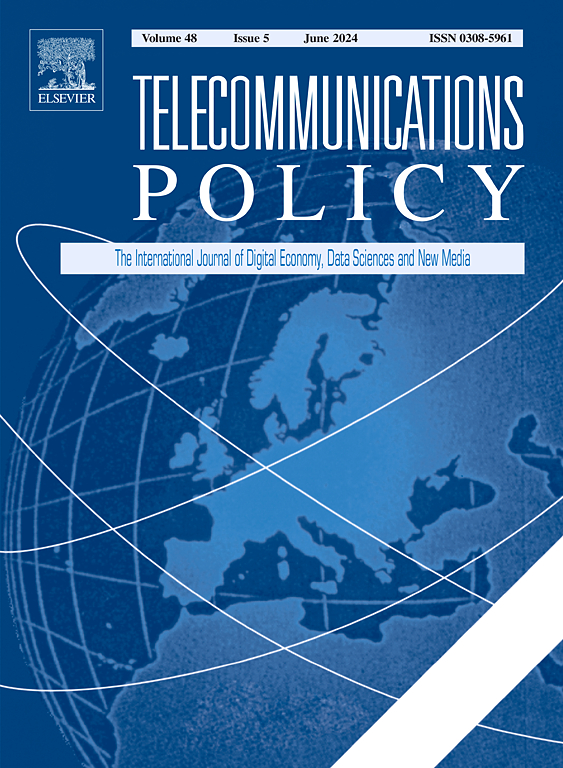Rethinking poverty: An econometric analysis of the role of ICT poverty in a global context
IF 6.4
2区 管理学
Q1 COMMUNICATION
引用次数: 0
Abstract
In an age of increasing digitalization, it is imperative for policymakers and researchers to grasp the profound impact of Information and Communication Technologies (ICTs) on poverty. This paper investigates the relationship between ICT poverty and the absolute poverty index across the Global South and North from 2012 to 2022. Furthermore, it assesses the influence of ICT poverty on the risk of poverty or social exclusion in various geographic areas—cities, suburbs/towns, and rural regions—across 28 European countries. Employing a range of panel models, such as fixed/random effects and the Generalized Method of Moments (GMM), the study uncovers significant positive associations between ICT poverty and absolute poverty and the risk of poverty or social exclusion across all geographic areas. Our research indicates that policies aimed at reducing ICT inequality—commonly known as the “digital divide"—are more effective in alleviating poverty than those solely focused on promoting ICT development. Additionally, the study introduces a new policy framework, the ICTs-PGI Triangle, which offers a roadmap for policymakers to mitigate ICT poverty in both the Global South and North. The empirical results highlight the importance of providing equitable digital access and literacy, particularly in rural and marginalized areas, for sustainable poverty reduction. Therefore, this study provides valuable insights into the intricate interplay between digitalization and poverty alleviation strategies, addressing a significant gap in the current literature.
重新思考贫困:全球背景下ICT贫困作用的计量经济学分析
在一个日益数字化的时代,决策者和研究人员必须把握信息通信技术(ict)对贫困的深刻影响。本文研究了2012年至2022年全球南北地区ICT贫困与绝对贫困指数之间的关系。此外,它还评估了信息通信技术贫困对28个欧洲国家不同地理区域(城市、郊区/城镇和农村地区)贫困或社会排斥风险的影响。该研究采用了一系列面板模型,如固定/随机效应和广义矩量法(GMM),揭示了在所有地理区域,ICT贫困与绝对贫困以及贫困或社会排斥风险之间存在显著的正相关关系。我们的研究表明,旨在减少信息通信技术不平等——通常被称为“数字鸿沟”——的政策在减轻贫困方面比那些只注重促进信息通信技术发展的政策更有效。此外,该研究还介绍了一个新的政策框架,即ICT - pgi三角,它为政策制定者提供了减轻全球南方和北方ICT贫困的路线图。实证结果强调了提供公平的数字获取和扫盲,特别是在农村和边缘地区,对于可持续减贫的重要性。因此,本研究为数字化与减贫战略之间错综复杂的相互作用提供了有价值的见解,填补了当前文献中的一个重大空白。
本文章由计算机程序翻译,如有差异,请以英文原文为准。
求助全文
约1分钟内获得全文
求助全文
来源期刊

Telecommunications Policy
工程技术-电信学
CiteScore
10.80
自引率
12.50%
发文量
122
审稿时长
38 days
期刊介绍:
Telecommunications Policy is concerned with the impact of digitalization in the economy and society. The journal is multidisciplinary, encompassing conceptual, theoretical and empirical studies, quantitative as well as qualitative. The scope includes policy, regulation, and governance; big data, artificial intelligence and data science; new and traditional sectors encompassing new media and the platform economy; management, entrepreneurship, innovation and use. Contributions may explore these topics at national, regional and international levels, including issues confronting both developed and developing countries. The papers accepted by the journal meet high standards of analytical rigor and policy relevance.
 求助内容:
求助内容: 应助结果提醒方式:
应助结果提醒方式:


